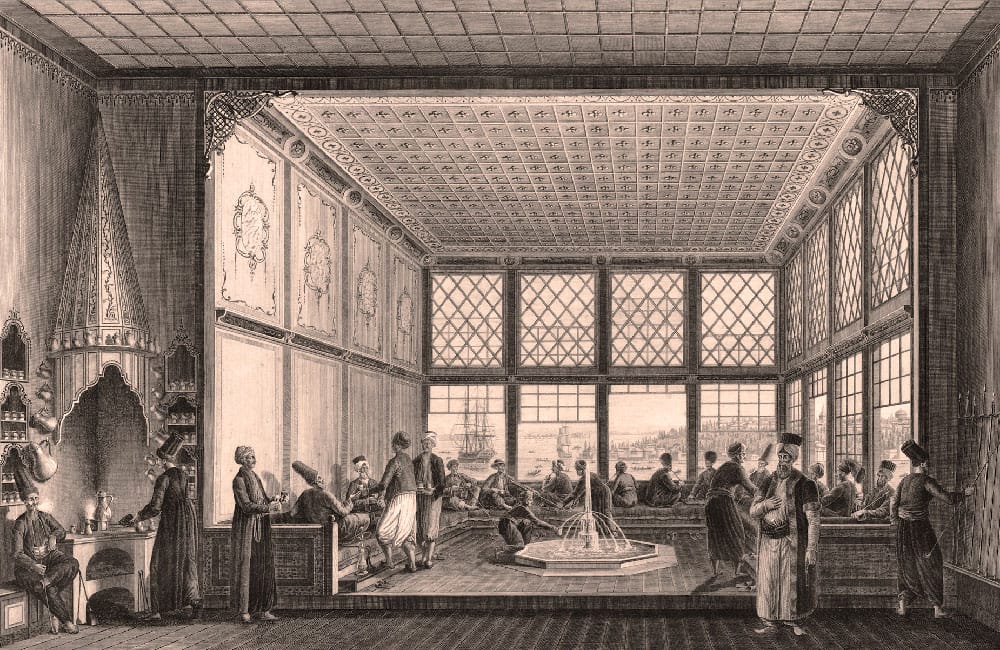Los beneficios del café -o sus posibles perjuicios- es una conversación habitual entre los aficionados a esta bebida. Y cada uno tiene su opinión. Con este artículo queremos darte los argumentos, basado en la ciencia, para que nadie te arruine este pequeño gran placer.
10 beneficios del café respaldados por la ciencia
El psicólogo social inglés Henry Tajfel [01] es conocido por desarrollar la Teoría de la Identidad Social. Esta teoría afirma que los grupos a los que pertenecemos nos definen y forman parte de nuestra autovaloración y las bases de nuestra autoestima.
La idea, simplificada, es la siguiente: un individuo necesita adherirse a un grupo con el cual comparte ciertos valores. Su identidad depende del grupo al que pertenece y surge en contraste con otros grupos.
Por lo que los valores de su grupo de pertenencia son ensalzados por encima de aquellos con los que se compara.
Esto no quiere decir que, necesariamente, los valores de su grupo de pertenencia sean mejores o más correctos que los de otros. Lo son, a nuestros ojos, porque necesitamos desarrollar una identidad positiva.
Dicho de forma simple, que lo que nosotros tenemos es lo mejor no porque lo sea, sino porque es nuestro.
Desde esta perspectiva podemos entender por qué defendemos aquello con lo que nos identificamos. Es la base de nuestra identidad, pero también de muchos prejuicios.
Sobre el café ha habido y hay muchos prejuicios. Aquellos que lo amamos los defendemos. Quienes no, lo vilipendian.
Pero ¿cuál es la realidad más allá de las opiniones? ¿Qué dice la ciencia al respecto?
Lo que nos interesa es indagar son los beneficios del café para la salud y qué perjuicios, si los hubiera.
Beneficios del café respaldados por la ciencia

El café es una bebida popular en muchos lugares del mundo
Durante años el café no ha gozado de muy buena prensa. Y en cierta manera, podía estar justificada.
La forma popular de consumir café en España, por ejemplo, está relacionada con el café torrefacto, la leche y el azúcar. Estos tres añadidos pueden ser perjudiciales para la salud.
El café torrefacto lo podemos considerar un añadido puesto que es el proceso de caramelizar las semillas de café con azúcar mientras se tuestan.
Por lo que aquí nos vamos a referir a los beneficios del café solo, y vamos a fijarnos en los estudios científicos que avalan estos beneficios.
Dado que el componente activo más importante del café es la cafeína, los posibles beneficios del café descafeinado quedan fuera de nuestro alcance.
El café es la principal fuente de antioxidante [02] en la dieta del mundo moderno occidental. Siendo así, entendemos que son muchos los estudios que se han desarrollado para dar cuenta de los beneficios y perjuicios del café.
Así, la próxima vez que alguien saque el tema de si el café es bueno o malo -un cuñado, por ejemplo- tendrás los argumentos para poner fin a esta discusión. Y seguir disfrutando de tu café
Valor nutricional y composición química del café
Podría parecer que un café solo, cuyos ingredientes son agua y café, no tendría un valor nutritivo muy elevado. Pero es sorprendente.
Antes de empezar con los beneficios del café para la salud, veamos cuál es la composición química y el valor nutritivo de una taza de café arábica filtrado solo (fuente: Ministerio de agricultura, pesca y alimentación [03]):

1. El café incrementa los niveles de energía
Un estudio [04] ha mostrado que el consumo de cafeína incrementó en un 12% el tiempo de los participantes para estar exhaustos durante un ejercicio de ciclismo. También disminuyó significativamente la percepción subjetiva del nivel de fatiga.
Otro estudio [05] sobre jugadores de golf muestra que el consumo de cafeína, antes y durante el torneo, mejoró el rendimiento. También se ha relacionado con un incremento subjetivo de los niveles de energía y una reducción del sentimiento de fatiga.
Esto se debe a que la cafeína bloquea los receptores de un neurotransmisor llamado adenosina. Este neurotransmisor está relacionado con la sensación de sueño y cansancio.
Bloquear los receptores de adenosina incrementa los niveles de otros neurotransmisores, lo que ayuda a regular los niveles de energía en el cerebro. Entre estos se encuentra la dopamina, un neurotransmisor relacionado con la motivación.
2. La cafeína puede ayudar con la salud cerebral
Existen estudios que sugieren que el café puede ayudar a proteger contra algunas enfermedades neurodegenerativas como el Alzheimer y el Parkinson. Aunque la investigación no es concluyente aún, sí es prometedora.
El consumo regular de cafeína se traduce en un menor riesgo de desarrollar Parkinson, de acuerdo con una revisión de 13 estudios [06]. No solo esto, sino que el consumo de café también protege contra la progresión del Parkinson.
Cuanto más café se consume, menor es el riesgo de padecer Alzheimer. Este es el resultado de la revisión de 11 estudios [07] en los que participaron más de 29.000 personas.
Otros estudios [08] han mostrado que el consumo moderado de café también se asocia con menor riesgo de demencia y deterioro cognitivo.

Uno de los beneficios del café es proteger contra el deterioro cognitivo
3. El consumo de café está relacionado con un menor riesgo de depresión
Cada taza de café que una persona toma por día está asociada con una reducción del 8% del riesgo de tener depresión. Bueno, eso es lo que propone esta revisión de siete estudios [09] sobre el café y la depresión.
Otro estudio [10] propone que beber cuatro tazas de café al día está asociado con un riesgo menor de depresión comparado con beber solo una.
Y un estudio [11] hecho con 200.000 personas mostró que beber café está relacionado con un menor riesgo de suicidio.
Tenemos que tomarnos estos estudios como indicaciones de que el café realmente puede contribuir a nuestra felicidad.
Pero no te recomendamos que tomes ocho cafés cada día. Es posible que seas más feliz… ¡pero irás tan acelerado que no te darás cuenta!
4. El café puede contribuir a la salud cardíaca
Todos hemos notado cómo el corazón palpita más rápido después de un buen café. Aunque no sabemos si es por la ilusión que nos hace un café bien hecho o por la cafeína.
Pero los estudios [12] dicen que beber tres o cuatro tazas de café al día está asociado con un menor riesgo de padecer un infarto. Este estudio indica que el riesgo se reduce en un 21%.
Otro estudio [13] en el que participaron 21.000 personas mostró que el consumo de café reducía significativamente el riesgo de paro cardíaco.
Aunque la cafeína también afecta a nuestra presión sanguínea. Por eso si tienes algún tipo de condición relacionada con esto deberías tener cautela con la cafeína.
Disfruta del café de temporada, visita nuestra tienda
5. El consumo de café puede estar ligado a un menor riesgo de diabetes del tipo 2
El café ayuda a preservar [14] la función de las células beta del páncreas. Estas células son responsables de la producción de la insulina que regula los niveles de azúcar.
Una revisión de 30 estudios [15] concluyó que cada taza de café que se consume en un día reduce en un 6% el riego de desarrollar diabetes del tipo 2.
Además, el café es rico en antioxidantes [16] lo que puede afectar de forma positiva a la sensibilidad a la insulina, la inflamación y el metabolismo. Estas funciones están relacionadas con el desarrollo de diabetes del tipo 2.
6. La cafeína puede ayudar con el control de peso
Un estudio [17] ha mostrado que las personas que toman una o dos tazas de café al día son un 17% más propensos a realizar ejercicio diario.
Esto puede resultar obvio… pero una revisión de 12 estudios [18] ha asociado un consumo elevado de café con menos grasa corporal en los hombres. En mujeres otros estudios [19] también han mostrado la relación entre la cafeína y menos grasa corporal.
Ya sea porque la cafeína nos activa y pone en movimiento o porque está relacionada con una menor acumulación de grasa y una mejor salud intestinal, puede ser una aliada para perder peso.
La cafeína, en estos casos, podría proceder de otras fuentes, como el café verde o un suplemento alimenticio.

El café está asociado a con un mejor rendimiento físico
7. Puede proteger contra enfermedades del hígado
Un estudio [20] ha mostrado que cuanto más café tomaban los participantes, menor era el riesgo de muerte por enfermedad crónica del hígado. Concretamente, una taza al día reduce el riesgo en un 15% y cuatro tazas en un 71%.
Otro estudio [21] relaciona más de dos tazas de café por día con tasas más bajas de cicatrización hepática y cáncer de hígado en personas con enfermedad hepática.
En personas sin enfermedades hepáticas, el café está relacionado [22] con la disminución de la rigidez del hígado. Esta es una medida que utilizan los profesionales de la salud para evaluar la fibrosis.
8. El café es la principal fuente de antioxidantes en la dieta occidental moderna
Diferentes estudios [23] han mostrado que el café es la principal fuente de antioxidantes en nuestra dieta, por encima de frutas y verduras.
En ocasiones pensamos que el café es solo agua negra. Con un delicioso aroma y sabor, pero sin nutrientes. Nada más alejado de la realidad. Muchos de los nutrientes de cada grano de café acaban en nuestra taza. Lo que significa que contiene una cantidad significativa de vitaminas y minerales.
Una taza de café contiene:
- El 6% de la dosis diaria recomendada de ácido pantoténico (vitamina B5)
- El 11% de la dosis diaria recomendada de riboflavina (vitamina B2)
- El 2% de la dosis diaria recomendada de niacina (B3) y tiamina (B1)
- El 3% de la dosis diaria recomendada de potasio y manganeso.
Y si te tomas un par de tazas al día, el efecto es acumulativo.

El café está asociado con una menor acumulación de grasa tanto en mujeres como en hombres
9. El café puede mejorar el rendimiento atlético
Una revisión de estudios [24] ha mostrado que el consumo de café antes de realizar ejercicio está relacionado con un mejor rendimiento y menos fatiga.
Por esta razón muchos atletas lo utilizan como una ayuda al rendimiento y para incrementar lo niveles de energía.
Otro estudio [25] realizado sobre 126 adultos concluyó que beber café mejoraba el rendimiento físico y la velocidad de marcha. Incluso después de que se ajustaran parámetros como la edad, los niveles de grasa corporal y ejercicio regular.
10. El café puede incrementar nuestra longevidad
Después de conocer todos los beneficios anteriores no debe de sorprendernos que el café esté ligado a una mayor longevidad.
Una revisión de 40 estudios [26] concluyó que beber de dos a cuatro tazas de café al día está relacionado con un menor riesgo de muerte. Y esto se mantiene independiente de factores como la edad, el peso o el consumo de alcohol.
El resultado de un estudio [27] sobre 1.567 personas refuerza estos resultados. Tras un seguimiento a los 12 y 18 años, se relacionó el consumo de café (con cafeína) con un menor riesgo de muerte en los participantes. Incluso una sola taza de café al día disminuye el riesgo de muerte por cáncer.

Uno de los beneficios del café es que puede ayudar a aumentar la longevidad
Entonces… ¿cuánto café es sano tomar?
Después de conocer todos los beneficios del café es posible que estés dispuesto a renunciar a cualquier otra bebida. Y hay estudios que sugieren [28] que beber una alta cantidad de café (no descafeinado) al día no se relaciona con un mayor riesgo de rigidez arterial, uno de los principales perjuicios atribuidos al café.
Aunque esto no significa que a partir de mañana te bebas un café cada media hora. El café puede tener un efecto diurético [29] sobre el organismo cuando se superan los 500mg de cafeína (unas 5 tazas). Esto puede causar deshidratación, otro de los perjuicios atribuidos al café.
Pero si tomas el café diluido con agua (como por ejemplo podría ser un americano) la menor ratio de agua/cafeína hace que tu cuerpo se hidrate de la misma forma [30] que si bebieras agua.
De hecho, se ha realizado un estudio con 50 personas [30] que bebían mucho café, cada día (800 ml.). Este mostró que estaban igual de hidratados que si hubiesen bebido la misma cantidad de agua.
El café afecta de forma diferente a cada persona y un excesivo consumo de cafeína puede generar malestar físico y psicológico. Por eso, la dosis máxima recomendada [31] es alrededor de unos 400-500 ml de café al día (unas 4 o 5 tazas) en personas sanas.
Descargo de responsabilidad:
Este blog, incluido el texto, los gráficos, las imágenes, los enlaces a recursos de terceros y otros materiales, tienen fines únicamente informativos.
No es una recomendación de consumo ni pretende sustituir el asesoramiento, el diagnóstico o el tratamiento médico.
Tanto si consideras que estás sano como si sufres alguna dolencia, consulta con un profesional medico cualificado sobre tu cantidad y forma de consumo de café.
Si consideras que puede estar teniendo una emergencia médica, llama a tu médico de inmediato.
Referencias:
[01] Psicólogo social inglés Henri Tajfel. Wikipedia
[02] Principal fuente de antioxidante. National Library of Medicine
[03] Ministerio de agricultura, pesca y alimentación
[04] Effects of caffeine on neuromuscular fatigue and performance during high-intensity cycling exercise in moderate hypoxia. National Library of Medicine
[05] Effect of Caffeine on Golf Performance and Fatigue during a Competitive Tournament. National Library of Medicine
[06] The Effect of Caffeine on the Risk and Progression of Parkinson’s Disease: A Meta-Analysis. National Library of Medicine
[07] Habitual coffee consumption and risk of cognitive decline/dementia: A systematic review and meta-analysis of prospective cohort studies. National Library of Medicine
[08] Consumption of coffee and tea and risk of developing stroke, dementia, and poststroke dementia: A cohort study in the UK Biobank. National Library of Medicine
[09] Coffee and caffeine consumption and depression: A meta-analysis of observational studies. National Library of Medicine
[10] Coffee Consumption and the Risk of Depression in a Middle-Aged Cohort: The SUN Project. National Library of Medicine
[11] Coffee, caffeine, and risk of completed suicide: results from three prospective cohorts of American adults. National Library of Medicine
[12] Coffee Consumption and Stroke Risk: Evidence from a Systematic Review and Meta-Analysis of more than 2.4 Million Men and Women. National Library of Medicine
[13] Association Between Coffee Intake and Incident Heart Failure Risk: A Machine Learning Analysis of the FHS, the ARIC Study, and the CHS. National Library of Medicine
[14] Coffee and Lower Risk of Type 2 Diabetes: Arguments for a Causal Relationship. National Library of Medicine
[15] Coffee consumption and reduced risk of developing type 2 diabetes: a systematic review with meta-analysis. National Library of Medicine
[16] Effects of coffee on type 2 diabetes mellitus. National Library of Medicine
[17] A Daily Cup of Tea or Coffee May Keep You Moving: Association between Tea and Coffee Consumption and Physical Activity. National Library of Medicine
[18] Coffee Intake and Obesity: A Meta-Analysis. National Library of Medicine
[19] Regular Coffee Consumption Is Associated with Lower Regional Adiposity Measured by DXA among US Women. National Library of Medicine
[20] Coffee: The magical bean for liver diseases. National Library of Medicine
[21] Coffee and Liver Disease. National Library of Medicine
[22] Coffee Consumption Is Associated With Lower Liver Stiffness: A Nationally Representative Study. National Library of Medicine
[23] Contribution of beverages to the intake of lipophilic and hydrophilic antioxidants in the Spanish diet. National Library of Medicine
[24] The Effects of Preexercise Caffeinated Coffee Ingestion on Endurance Performance: An Evidence-Based Review. National Library of Medicine
[25] Associations of coffee drinking with physical performance in the oldest-old community-dwelling men The Helsinki Businessmen Study (HBS). National Library of Medicine
[26] Coffee consumption and all-cause and cause-specific mortality: a meta-analysis by potential modifiers. National Library of Medicine
[27] Coffee Consumption and All-Cause, Cardiovascular, and Cancer Mortality in an Adult Mediterranean Population. National Library of Medicine
[28] 9 Effect of coffee consumption on arterial stiffness from UK biobank imaging study. BMJ Journals - Heart
[29] Coffee consumption and total body water homeostasis as measured by fluid balance and bioelectrical impedance analysis. National Library of Medicine
[30] No evidence of dehydration with moderate daily coffee intake: a counterbalanced cross-over study in a free-living population. National Library of Medicine
[31] Dietary Guidelines for americans 2015-2020. National Library of Medicine









